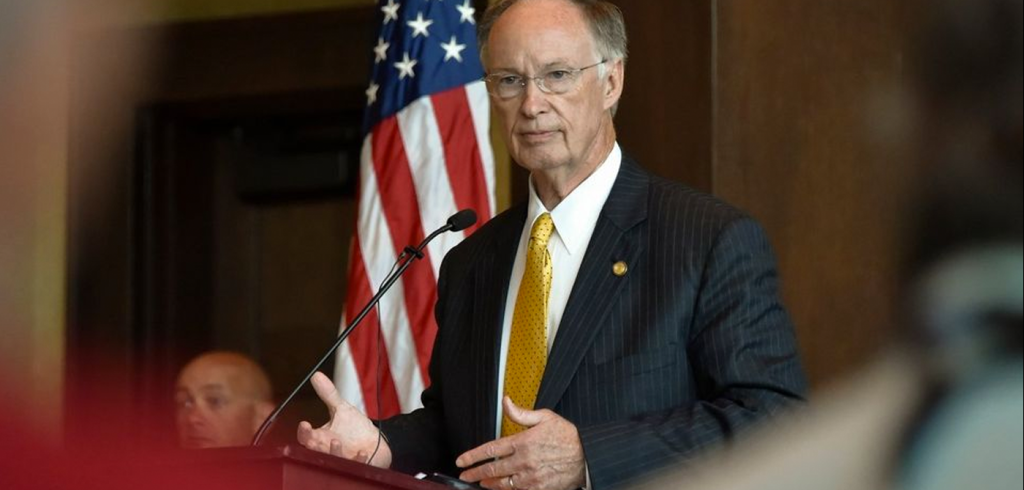Petition to keep felony rap for killing animals gathers momentum after dog slaying

A new petition to keep felony penalties attached to malicious animal killings is circulating on Change.org after the grisly slaying of an American Staffordshire Terrier named Rufus by a divorce-aggrieved Birmingham lawyer. In July 2012, police said, James Stewart Robinson slit Rufus’ throat in retaliation against his now ex-wife amid a bitter custody battle over the dog. According to court reports, the Vestavia County Sheriff’s Office said that Robinson then texted his estranged spouse a photo of the Rufus and threatened to harm her as well, texting her “Your day is coming girl.” He was convicted on harassment charges by the Vestavia Hills Municipal Court, but appealed those charges in Jefferson County Circuit Court where he now lives and is set to face trial in January. According to the Change.org petition, presiding Judge Jonny Rochester has asked prosecutors to pursue misdemeanor charges instead of more serious felony charges, though Deputy Dwight Sloan, who investigates animal cruelty for the Jefferson County Sheriff, worked passionately to secure the more serious category of charges. “Faced with the violent nature and sheer cruelty of the crime, both the Prosecutors and Deputy Sheriff in charge of the investigation are sticking to their guns and refusing to allow Robinson a mere slap on the wrist,” the petition reads. “However, the Judge is standing in the way of Rufus getting his day in court.” “Please let Judge Rochester know that pets are family members, and the murder of one should be punished appropriately, as a FELONY, not reduced to a misdemeanor. By signing this petition, you are asking Judge Rochester to respect the police finding of this crime as a felony.” The petition as of publication time had gathered 3,0110 signatures.
Jeb Bush on books: From Bible to historical thriller

Looking for a summer book list? Jeb Bush has some to recommend. In a detour from policy questions about immigration and the Middle East on Thursday, the likely Republican presidential candidate was asked by an employee of a biomedical company what he ought to be reading. “If I were to read one book this year, what would you recommend?” asked Clayt Robinson, one of about 100 Emergent employees who met Bush after he toured the Lansing, Mich., lab. “Wow,” Bush said, before quickly compiling a list that began with what he’s reading now: St. Paul’s letters in the New Testament. “I would recommend that,” he said, “particularly if you want to get your life centered.” The former Florida governor sparked laughter in the company’s break room when he transitioned to other works, “if you want to be depressed about things.” Charles Murray‘s “Coming Apart” and Robert Putnam‘s “Bowling Alone” are works on the lack of social mobility in the United States, sobering and “pretty nerdy,” he said. Bush described Murray as libertarian and Putnam’s “extraordinary book” as coming from the left. Bush capped the list with a wildcard: Erik Larson‘s “The Devil in the White City.” The nonfiction best-seller is about the conception and construction of the 1893 World’s Fair in Chicago, which coincided with a series of murders in the city. “They built this extraordinary world’s fair in a year and a half,” Bush said. “And at the same time there was this guy who built an incinerator in his apartment complex and was killing women.” “It’s a spectacular book,” he finished before adding, “Don’t ask me what movies I’ve seen, because I haven’t.” Bush planned to speak at a Lansing-area Republican dinner later Thursday and raise money in the Detroit area Friday. Republished with permission of The Associated Press.
Senate delays vote on controversial plan to unify state budget

After a lengthy debate on the Senate floor late Thursday, lawmakers voted to carry over a bill to unify the Alabama general fund and education budgets. Sen. Gerald Dial filed Senate Bill 502 to allow voters to decide whether to establish a single state budget and remove any recommendations or limits on how funds within that budget should be spent. On Thursday, Dial again urged lawmakers to allow the issue to go before the voters of Alabama: “I’m trying to offer another alternative to some of the problems we’re in.” Dial repeated the reasoning he used during the finance and taxation committee meeting this week, when he said that without the practice of earmarking, or placing limits on how money is spent within the budget, Alabama lawmakers might have a different set of funding decisions to make this session. Sen. Rodger Smitherman, a Democrat, spent more than an hour attempting to block the legislation over concerns that the proposal would erase funding for Alabama’s public schools. “I’m standing here for every child in Jefferson County because they can’t vote,” Smitherman said. “I’ve heard the facts, we are 49th in this country [for education], we can’t fully fund textbooks, the last time the teachers had a raise was 2008 […] now we’re saying that there’s enough money left in the Education Trust Fund to fund all these other things. Not on the backs of our young people.” The decision to carry over the legislation was made by voice vote.
House passes bill to create long-term care networks

The Alabama House has passed a bill that would establish integrated care networks to allow more Medicaid recipients to stay in their homes instead of nursing homes. The House on Thursday passed the bill 98-0. The Senate unanimously passed the legislation earlier this month. Republican state Sen. Greg Reed says the legislation could cut Medicaid costs by $1.5 billion over a decade. Reed says the bill would allow more Medicaid recipients to receive home-based care. The legislation is a continuation of Medicaid changes the Alabama Legislature passed in 2012 when it established regional care organizations. Under the proposed legislation, Medicaid beneficiaries would be prohibited from participating in both a regional care organization and an integrated care network. Republican state Rep. April Weaver sponsored the House version. Republished with permission of The Associated Press.
House OKs expanding program helping pay for private school

The Alabama House on Thursday voted to expand a program that helps some families pay for private school, but it also wants to tighten restrictions on scholarships and the groups that distribute them. The House of Representatives voted 68-26 to approve changes to the Alabama Accountability Act. The Alabama Accountability Act provides income-tax credits — a dollar-for-dollar reduction on an income-tax bill — in exchange for donations to the scholarship-granting organizations. Children in failing public schools have priority for the scholarships. Failing schools are the bottom 6 percent of K-12 schools on standardized test scores. The bill expands the cumulative yearly cap on donations from $25 million to $30 million. It would also tighten income restrictions on recipients and expand reporting requirements for the organizations that hand out scholarships. Senate President Pro Tem Del Marsh praised the proposed changes to the program he helped create two years ago. He said the cap needed to be raised after a scholarship granting organization did not raise enough money to renew scholarships while there was ongoing litigation over the program. “It tightens up a lot of the accountability. I think it makes excellent challenges to the Accountability Act and will allow those worthy students and parents to continue to in the program,” Marsh said. The bill would also increase reporting requirements and specify that the Department of Revenue can audit the scholarship-granting organizations. The proposal would also tighten income requirements on new scholarship applicants to 185 percent of the federal poverty level. That means a family of four would have to earn $44,123 or less each year to qualify for the scholarship. The Alabama Senate sent the bill to conference committee to review a House change that will require the Department of Education to maintain a database of scholarship recipients’ test scores. Republished with permission of The Associated Press.
State, feds reach agreement on women’s prison abuse, conditions

Alabama has reached a settlement with the U.S. Justice Department over a state prison for women that federal officials said subjected inmates to a toxic culture of abuse and harassment. The agency on Thursday filed a federal lawsuit against Alabama over conditions at Julia Tutwiler Prison and a settlement agreement to address the abuse. The Justice Department said last year that corrections officers at the prison had assaulted inmates, coerced inmates into sex, inappropriately watched inmates in the showers and organized a New Year’s Eve strip show. Alabama agreed to install monitoring cameras and put in place new procedures to ensure inmate complaints are taken seriously. Gov. Robert Bentley said the changes will make Tutwiler a safer place for inmates and staff. Republished with permission of The Associated Press.
AL congressional delegation disagrees with new EPA Clean Water Rule

The U.S. Environmental Protection Agency rolled out a new plan Wednesday to expand the Clean Water Act to include more bodies of water. According to EPA, the 297-page “Waters of the United Sates” (WOTUS) rule ensures that waters protected under the existing Clean Water Act are “more precisely defined, more predictably determined, and easier for businesses and industry to understand,” as two Supreme Court rulings in 2001 and 2006 have left the current scope of the law uncertain. “Today’s rule marks the beginning of a new era in the history of the Clean Water Act,” Assistant Secretary for the Army Jo-Ellen Darcy said. “This rule responds to the public’s demand for greater clarity, consistency, and predictability when making jurisdictional determinations.” However, that’s not the way the Alabama delegation and critics across the country see it, calling it a massive federal government power grab. “For decades, water quality regulation has been primarily the responsibility of state governments, but this rule would significantly shift that responsibility to the federal government,” U.S. Rep. Bradley Byrne told Alabama Today. “This rule would have an especially harmful impact on our farmers and foresters, who could face new compliance requirements and costs.” U.S. Rep. Gary Palmer also expressed his disdain for the rule. “This expansive rule would allow the EPA to place onerous regulations on almost any body of water. While the EPA claimed to listen to the extensive public outcry over this proposal by making cosmetic changes, the rule is still well beyond EPA’s rightful authority,” Palmer said in a statement issued Wednesday evening. U.S. Rep. Mike Rogers joins in the disapproval. According to the congressman’s press secretary, “Congressman Rogers was extremely disappointed the overreaching EPA chose to go forward with the ‘Definition of “Waters of the United States” Under the Clean Water Act,’ despite House passage of H.R. 1732, which Congressman Rogers strongly supported. This rule includes EPA control of puddles and ditches and could hurt family farms and landowners.” H.R. 1732, the Regulatory Integrity Protection Act designed to block the implementation of the new EPA rule, was voted on in the U.S. House of Representatives this month with support of all of Alabama’s representatives excluding Rep. Terri Sewell who did not vote. It passed the House on May 11 by a vote of 261-155. The bill was received in the Senate on May 13, but has yet to be considered. But there’s hope for the legislation, as Alabama’s House members aren’t the only ones concerned with the new EPA Clean Water rule. U.S. Sen. Richard Shelby told Alabama Today that he thinks the EPA is overreaching. “The EPA’s final rule redefining ‘waters of the United States’ is yet another example of the Obama Administration’s overreach. The rule will place thousands of streams, creeks, wetlands, ponds, and ditches throughout the country under the control of Washington bureaucrats instead of private property owners. I have supported legislation in the Senate to prohibit this harmful rule, and I will continue to fight against it as well as other burdensome rules and regulations from the EPA.” U.S. Sen. Jeff Sessions joined seven of his Republican colleagues on the Environment and Public Works (EPW) Committee last April sent a letter to President Barack Obama regarding the then proposed WOTUS rule. “The scope of CWA jurisdiction is one of the most important regulatory issues facing landowners, businesses, and municipalities today,” the senators wrote. “The proposed ‘Waters of the U.S.’ rule will exponentially impede economic recovery and is a significant step in the wrong direction. Mr. President, the decision to move forward would be a clear breach of your promise to cut through red tape.”
Sponsors of Common Core repeal bill to regroup for 2016

With the 2015 legislative session coming to a close, sponsors of a bill to repeal Common Core are already starting to rally for the next session. At a press conference on Wednesday, Sen. Rusty Glover and Rep. Bob Fincher – both retired educators — expressed continued concerns over what they described as lack of local control over the state’s education curriculum. Senate Bill 101 abolishes the Common Core education standards in Alabama and grants control of education curricula to state and local education officials. In addition, the bill prohibits state agencies from implementing any other national education standard to replace Common Core. Sen. Glover said that the proponents of the bill had been outspent this session. “It’s just really sad that a lot of what you have to say has fallen on deaf ears because […] money folks that have so much influence have disrupted our efforts,” he said. Sen. Glover also aired concerns that the portion of the Alabama College and Career Ready Standards (ACCRS) that is designed by Alabama educators would be sacrificed to reach standardized test performance goals. “When they say that this is an Alabama standard, 85 percent is Common Core and just 15 percent is created by local and state school board authority,” said Sen. Glover. “It’s outrageous to think that people are actually taking in an Alabama standard when the 15 percent created by Alabamians is largely ignored. If there’s a standardized test, there’s a lot of pressure on the teacher to do very well on that test. So you know that that 15 percent of curriculum standards will be totally ignored.” According to State Board of Education member Stephanie Bell, the curriculum has taken a toll in Alabama classrooms over the last four years. “Common Core is not just about bad education, it’s about destroying the potential of our children,” said Bell. “We have already lost some of our best teachers […] Not just 5 or ten, but hundreds.” Last month, the Senate Committee on Education and Youth affairs gave a favorable report to Senate Bill 101. The sponsors, however, have said that getting enough votes to pass the bill out of either chamber would be a challenge. Rep. Fincher said the way forward in the next session would likely rely on support from newly-elected legislators. “Our leadership in the House is not with us, some of the older members are not with us, but I have been encouraged – very encouraged – with some of the new members in the House that were just elected,” said Rep. Fincher. “We have a lot of support among the freshman in the House. A lot of them have stepped forward and signed the bill to bring about the defeat of Common Core.” “I think we’ve made some headway this time,” said Rep. Fincher. “We have not gotten where we need to be, and those who suffer will not be us, it’ll be the children of this state.” Ann Eubank, co-chair of the Rainy Day Patriots and legislative chair of the Alabama Legislative Watchdogs, told Alabama Today that her group was not surprised by the outcome. “I was not surprised that they killed the bill to repeal Common Core again,” she said via email. “They have been jerking our chain for 4 years. It ends now, no more nice tea party ladies.” Emphasizing their intent moving forward she added, “A strong group in opposition to Common Core are setting up a PAC for the next election and no one who supports Common Core is safe from a tough fight. In addition, we will be launching a program to boycott those businesses that give money to the Business Council of Alabama (BCA) which supports the destruction of our children and our country.” Updated at 5:04 pm to add quote from Ann Eubank, co-chair of the Rainy Day Patriots and legislative chair of the Alabama Legislative Watchdogs.
National best/worst rankings a mixed bag for Alabama

As the state makes legislative changes to gear up to be more relevant in the national political scene ahead of 2016 elections, a recent spate of national reports point to uneven progress in Alabama’s public affairs. To begin on a positive note, the inveterate rankers at Niche have given a nod of recognition to 11 of Alabama’s suburbs. Jefferson County in particular looked good in the recent rankings, as both Vestivia Hills — the No. 1 Alabama suburb overall — and Mountain Brook took home top honors. Madison, Pelham and Taylor rounded out the top five in terms of livability and quality nearby schools, the study’s top critera. Speaking of schools, Alabama’s voluntary pre-kindergarten programs continue to score highly in national efficacy models. For the ninth time in the study’s history, the National Institute for Early Education Research named Alabama’s system No. 1 in the country, citing rigorous standards and delivery in its appraisal. On the other hand, a recent study conducted by the Gallup-Healthways Well-Being Index ranked the Yellowhammer State No. 6 in the nation in obesity rates, with only West Virginia, Louisiana, Arkansas, Oklahoma and Mississippi rating more obese. Alabama’s rate of obesity — 32.1 percent of the population, according to the survey — is significantly greater than the national rate of 27.7 percent, indicating that the condition is a lingering public health problem in the state. In terms of its political profile, Alabama is commonly thought to be a bastion of Tea Party activism, wherein hard-right tendencies often carry the day. But according to an analysis by the Institute for Research and Education on Human Rights, 21 other states, including neighboring Florida, rank higher than Alabama, which rings in at 22nd on the list overall. Mega-states like Texas and the aforementioned Sunshine State far outpaced Alabama according to the study, which said about 7,153 Tea Partiers in 14 active chapters make up the state’s “Taxed Enough Already” constituency, good for just better than middle of the pack nationally, despite the conventional wisdom. As Alabama continues to grow in national muscle, expect a good deal more comparing and contrasting to come.
Robert Bentley swears in new board for 2-year colleges

Gov. Robert Bentley has appointed the state’s first commission to oversee Alabama’s 25 community and technical colleges. Senate Bill 191, sponsored by Sen. Trip Pittman was signed into law in early May. During floor debate, Rep. Steve McMillan, who carried the bill in the House of Representatives, said that the shift would help the schools to focus on developing more specialized training programs and preparing entry-level employees to meet growing workforce demands. The state board of education had been responsible for community colleges, junior colleges, technical colleges, and trade schools. The group was not in favor of the legislation, calling it a “power grab” by Alabama lawmakers. Mary Scott Hunter, member of the state board, will serve as a nonvoting member of the commission and a liaison between the community college system and the BOE. Bentley swore in the new commission in a ceremony at the Capitol on Wednesday. The eight-member committee has already been sworn in by the Senate. Al Thompson III, representing Alabama Congressional District 1 Ron Fantroy, representing Alabama Congressional District 2 Susan Blythe Foy, representing Alabama Congressional District 3 J. Frank Caldwell, representing Alabama Congressional District 4 Crystal Brown, representing Alabama Congressional District 5 Milton Davis, representing Alabama Congressional District 6 Chuck Smith, representing Alabama Congressional District 7 Blake McAnally, representing the at-large position
Lawmakers grant final approval to Right to Try bill

Alabama lawmakers granted final passage Thursday to a bill that would allow physicians to prescribe terminally ill patients promising, but unapproved medical treatments. House Bill 463, known as the Right to Try Act, passed the House of Representatives by a vote of 97-0. The bill says that doctors caring for people with terminal illnesses can prescribe medications that the Food and Drug Administration has deemed promising, but not yet ready for mass consumption. Thursday’s vote makes Alabama one of at least 12 states that have passed right to try legislation this year. House Bill 463 and Senate Bill 357 were inspired by 9-year old Gabe Griffin of Shelby County. At age 3, Gabe was diagnosed with Duchenne, one of nine types of Muscular Dystrophy. The disease causes generalized weakness and muscle wasting that increases over time and with muscle activity. Not only is the disease incurable, according to the Muscular Dystrophy Association, boys with Duchenne typically did not survive beyond their teens. Two Alabama lawmakers, Sen. Cam Ward and House health committee chair Rep. April Weaver, agreed to sponsor legislation that would help Gabe and other terminal patients work with their doctors to access medication in the earliest stages of FDA approval. Ward’s bill has already passed the Senate. When he introduced the Senate version of the bill, Ward said in a prepared statement: “Terminal patients should have a right to try, and as a father and an elected official I believe we should do everything we can to help remove unnecessary bureaucratic red tape from the process so that doctors and terminally ill patients can determine the best course of action in each individual situation.” The initial barriers, according to Gabe’s father, Scott Griffin, came from the Food and Drug Administration when the family tried to gain accelerated access to experimental treatments for Gabe. In a recent interview with Alabama Today, Griffin recalled one of his conversations with FDA administrators. “The first argument was that the patient population of one of the studies was too small: just 12 kids. Then they said the results in the study may have been just the natural difference in the disease … They said, ‘Well we have the best drug approval process in the world’ and ‘You have to understand that we have to worry about long-term side effects.’ And I said to them, ‘Explain to me what a long-term side effect is to a child who is going to die.’” The Food and Drug Administration has acknowledged that the accelerated approval process can be daunting for patients and medical providers. In a statement on the FDA website, assistant commissioner Peter Lurie M.D. said that although approvals can happen within days – or even hours – of a finished application, the process has given them cause for concern. “It called for 26 separate types of information and seven attachments,” Lurie wrote. “In fact, it was originally designed for manufacturers seeking to begin human testing, not for physicians seeking use by single patients.” According to Lurie, those concerns are what drove the FDA to announce a new streamlined process to allow patients access to experimental drugs. The FDA website says that the new forms “will be used for requesting the medications, and is designed to greatly simplify and accelerate the process by which a physician can request that FDA permit the use of an experimental — so-called ‘investigational’ — drug or biological product while it’s still being tested to establish its safety and effectiveness.” However, the forms are still going through the administrative rulemaking process and not yet available to the public. The official website gave no indication on when the final guidelines would be available for patients or providers. For the Griffins, the FDA roadblocks helped fuel their decision to lobby Alabama lawmakers. “We believe those drugs could save him, but we can’t get them because they’re not FDA approved,” Griffin said. “And after years of petitioning the FDA, we decided to take our fight to the state level.” The Griffins aren’t alone. According to the National Conference of State Legislatures, a growing number of states are considering legislation to work around those barriers and help patients gain access to experimental drugs. Thursday’s vote makes Alabama one of 12 states that have passed right to try bills so far this year. The NCSL reports that lawmakers in at least 36 states proposed “right to try” measures in 2015.
High school grad who led prayer that went viral to open Legislative Session

Recent Clay-Chalkville High School graduate Christian Crawford will open Alabama Legislative Session when it opens on Wednesday, according to a media report on AL.com. The Trussville native and Sam’s Club employee — who is slated to attend Auburn University in the fall — came to the rescue at his high school graduation ceremony last week when a woman collapsed in the audience, leading to confusion and concern among attendees. “Everybody can I have your attention real quick?” Crawford began, as cheers began to grow from the crowd. “We don’t know what’s going on, but we will pray. We know that prayer is power, and that God is able. Let’s pray. Father God, we thank you for this day, Lord. We pray right now that whatever is going on, you will fix it, God. We pray that you will heal it, God.” Watch his extemporaneous prayer below: The address has officially gone viral and has accrued more than 628,000 views on YouTube. Crawford, who says he plans to study communications and political science at Auburn, told AL.com he’s looking forward to addressing lawmakers in the statehouse. “It’ll be fun,” Crawford told AL.com this morning. “It’ll be a new experience. It’s part of making a difference and being a positive influence for the world, the country, making laws that will benefit the state.”


